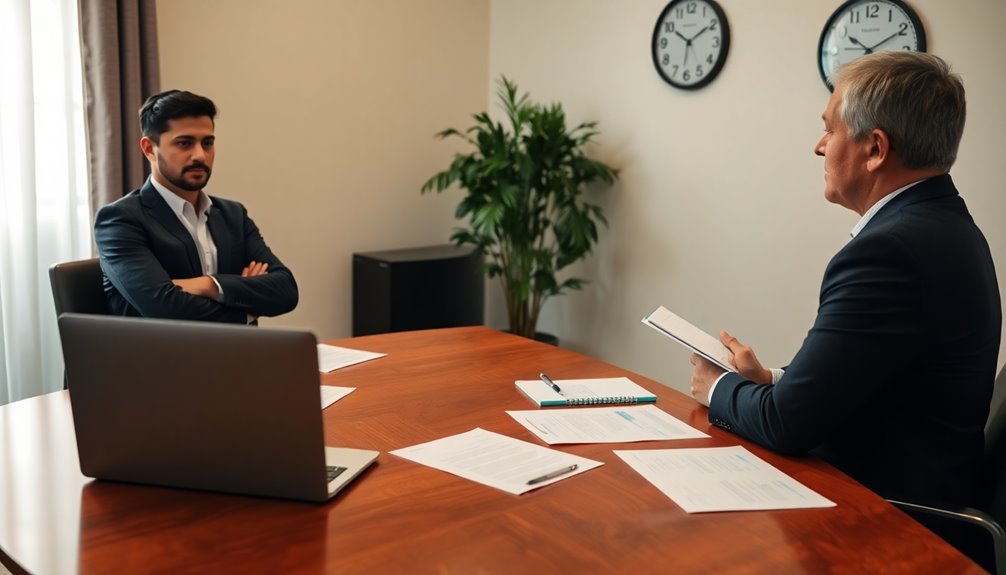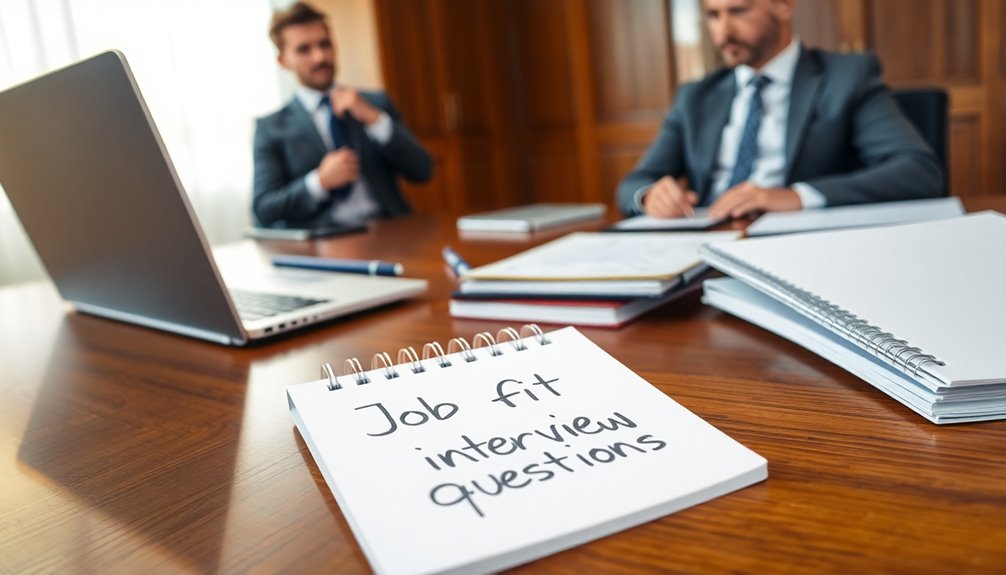Revealing the secrets of job interviews involves understanding various formats like one-on-one, panel, or group setups. You need to prepare by researching the company's culture and practicing answers to common questions. Keep your communication clear and confident. Eye contact and positive body language are essential for making a strong first impression. Don't forget to dress appropriately and create a professional backdrop for remote interviews. Managing anxiety through preparation and deep breathing can enhance your performance. By mastering these elements, you can greatly boost your chances. There's so much more to explore to enhance your interview success.
Key Takeaways
- Research the company's values and culture to tailor your responses and demonstrate alignment with their mission during the interview.
- Practice common interview questions and scenarios, including behavioral and situational questions, to build confidence and articulate your experiences effectively.
- Create a professional remote interview setup with good audio, video quality, and an appropriate backdrop to make a positive impression.
- Dress appropriately for the company's culture and maintain good body language, including eye contact and a firm handshake when applicable.
- Send a thoughtful thank-you email post-interview, reiterating your interest and highlighting key discussion points to reinforce your candidacy.
Traditional Interview Formats
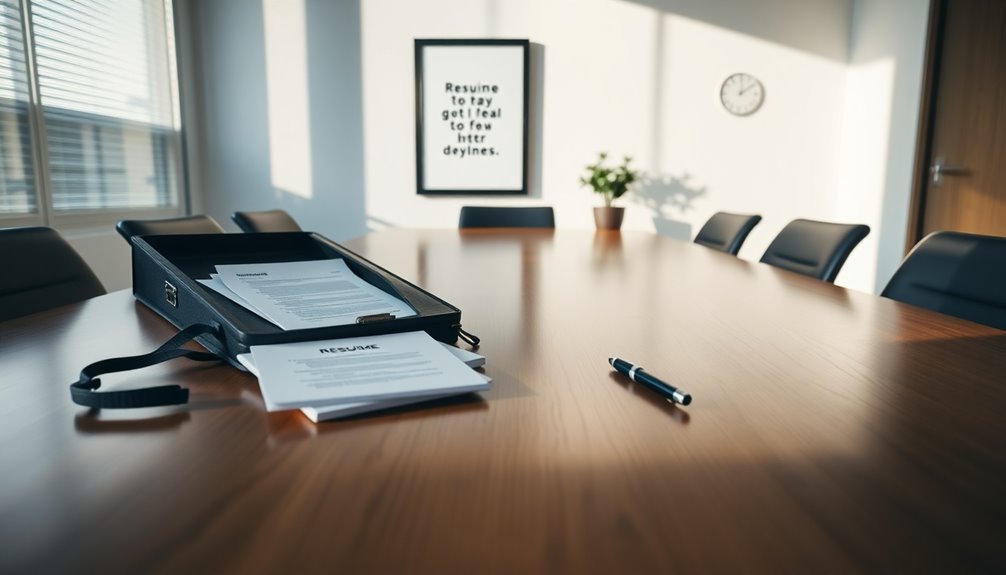
When it comes to traditional interview formats, the one-on-one interview stands out as a classic choice for many employers. This format allows you to engage directly with the interviewer, providing an opportunity to demonstrate your experience, skills, and cultural fit.
You'll find that these interviews can be structured or unstructured, enabling a more personal connection. In contrast, panel interviews involve multiple interviewers who assess you from different perspectives, which can be intimidating but also thorough.
Group interviews are another option, testing your teamwork abilities alongside other candidates. Each of these formats has its unique advantages, so understanding them can help you prepare effectively and showcase your best self during the interview process.
Remote Interview Techniques
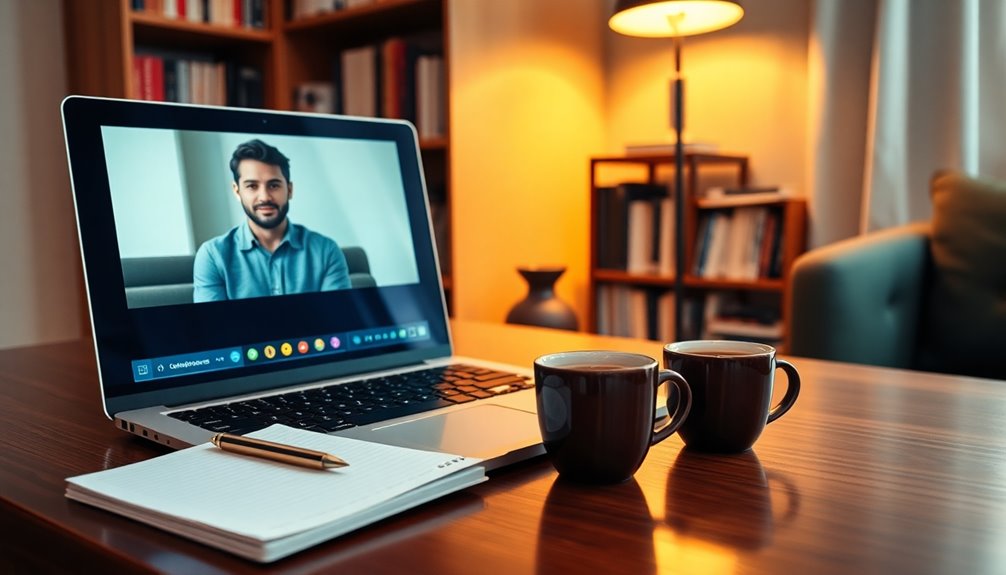
Remote interviews have become increasingly popular, offering flexibility and convenience for both candidates and employers. To make a strong impression, guarantee you've set up a professional backdrop and tested your technology beforehand.
Check your audio and video quality to avoid interruptions during the interview. Dress appropriately, as you'd for an in-person meeting, to convey professionalism.
During the interview, maintain eye contact by looking at the camera instead of the screen. Use clear, concise language to articulate your thoughts, and be ready to adapt if technical issues arise.
Finally, remember to follow up with a thank-you email, reiterating your interest in the position and reflecting on key points discussed, reinforcing your enthusiasm and professionalism.
Informal Interview Styles

Informal interview styles create a relaxed environment that encourages open dialogue and authentic connections.
These formats allow you to showcase your personality beyond your resume, making it easier for interviewers to see if you're a good cultural fit.
Here are three emotional benefits you might experience during an informal interview:
- Increased Comfort: You can express yourself more freely, reducing anxiety and allowing genuine conversation.
- Better Rapport: Building a personal connection can lead to a more memorable impression on the interviewer.
- True Self-Expression: You can share stories and experiences that truly reflect who you are, not just what you've done.
Embrace the opportunity to connect on a deeper level; it might just set you apart from other candidates.
Specialized Interview Approaches
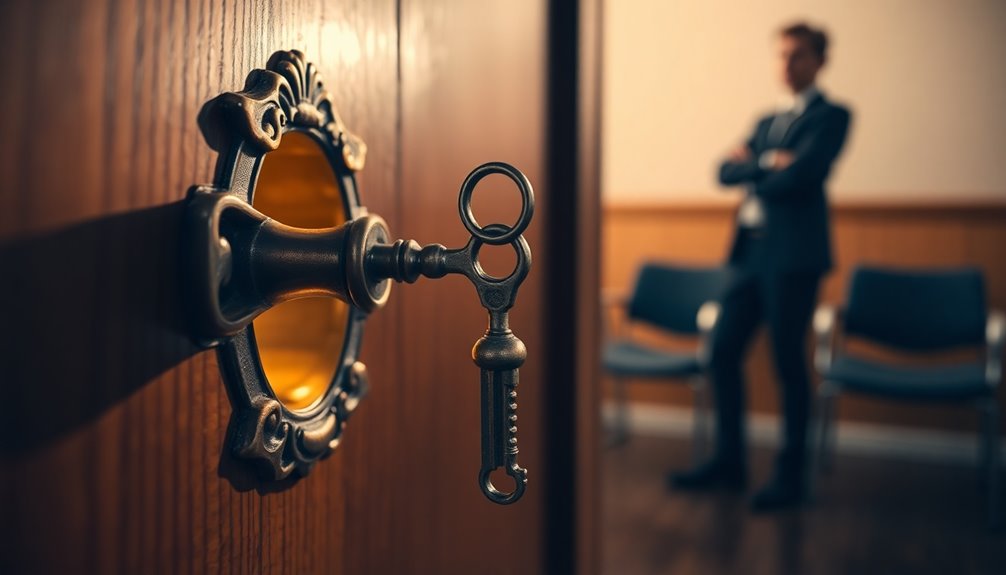
Specialized interview approaches dive deeper into evaluating candidates' capabilities beyond standard qualifications.
These methods, like behavioral and situational interviews, focus on real-life experiences and hypothetical scenarios. You'll be asked to describe past situations or how you'd handle specific challenges, which reveals your problem-solving and interpersonal skills.
Competency-based interviews zero in on particular skills relevant to the job, scrutinizing your evidence of leadership, teamwork, and communication abilities.
Engaging in these specialized formats allows interviewers to gain a clearer picture of your fit for the role. By understanding these approaches, you can better prepare your responses, showcasing your strengths and aligning them with what the employer seeks, ultimately enhancing your chances of success in the interview process.
High-Pressure Interview Methods

High-pressure interview methods are designed to evaluate how you handle stress and challenging situations. These interviews can be intimidating, but they also provide an opportunity to showcase your resilience.
Here's what you might encounter:
- Stress Interviews: Expect tough questions that push your limits. Your ability to stay calm under fire will be tested.
- Puzzle Interviews: Be prepared for brain-teasers that challenge your critical thinking. It's not just about getting the right answer; it's about how you approach the problem.
- Rapid-Fire Questions: You may face a barrage of questions with little time to think. This tests your quick thinking and adaptability.
Practical Interview Formats

After maneuvering through the intense atmosphere of high-pressure interviews, you might find practical interview formats to be a revitalizing change.
These formats, like working and case interviews, let you showcase your skills in real-time. In a working interview, you'll complete job-related tasks, giving employers a direct look at your capabilities and work ethic.
Meanwhile, a case interview presents hypothetical business scenarios, challenging you to analyze and solve problems on the spot. Both formats emphasize practical application over theoretical knowledge, allowing you to demonstrate how you'd handle tasks relevant to the role.
Embrace these opportunities to shine and make a lasting impression by showing not just what you know, but how effectively you can apply it.
Quick Screening Techniques
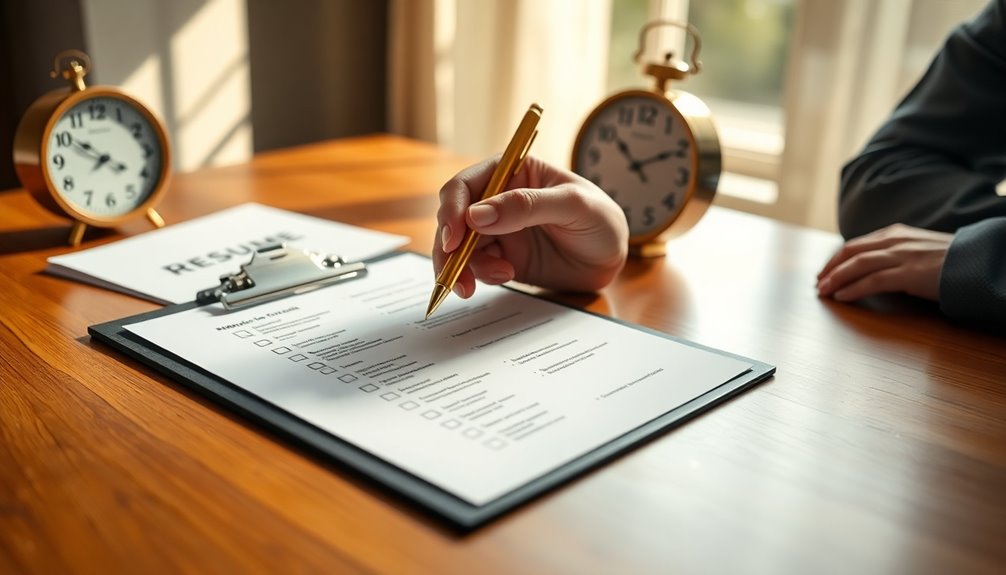
- Be Ready to Shine: Prepare a concise elevator pitch that highlights your skills and experience.
- Show Genuine Enthusiasm: Your passion can set you apart; let it come through in your tone and body language.
- Ask Thoughtful Questions: Engage the interviewer by asking insightful questions about the role or company to demonstrate your interest.
- Practice Your Delivery: Just like in public speaking, effective public speaking training can enhance your confidence and clarity during interviews.
Effective Preparation Strategies

In the days leading up to your interview, effective preparation can make all the difference in your performance. Start by researching the company's culture, values, and recent developments. Tailor your answers to reflect how your skills align with their goals.
Practice common interview questions, focusing on those that showcase your achievements and problem-solving abilities. Don't forget to prepare questions for the interviewer, demonstrating your interest in the role.
Choose an appropriate outfit that matches the company's dress code, ensuring you present yourself professionally. Finally, organize any necessary documents, like your resume and references, so you can easily access them.
A well-prepared candidate exudes confidence, which can greatly impact the interviewer's perception of you.
Engaging With Interviewers

Preparing thoroughly for an interview sets the stage, but engaging with interviewers during the conversation is just as important.
You want to build a connection that leaves a lasting impression. Show genuine interest by actively listening and responding thoughtfully.
Here are three ways to enhance your engagement:
- Make Eye Contact: It conveys confidence and shows you're fully present in the moment.
- Ask Insightful Questions: This illustrates your enthusiasm and curiosity about the role and company.
- Use Positive Body Language: Your posture and gestures can communicate your excitement and openness, making you more relatable.
Managing Interview Anxiety
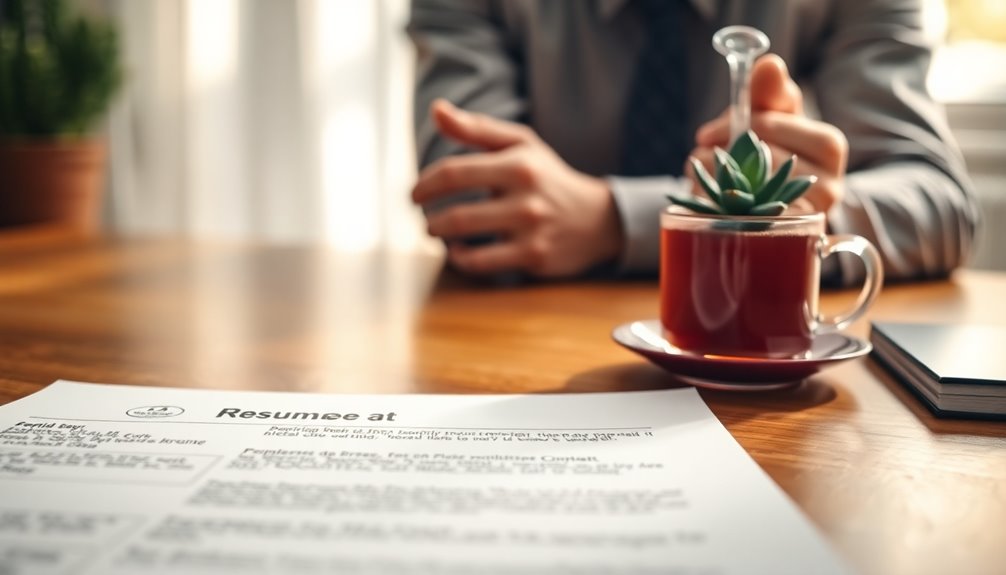
Interview anxiety is a common hurdle many candidates face, but it doesn't have to derail your performance. To manage this anxiety, start by preparing thoroughly. Research the company, practice your responses, and visualize success.
Deep breathing techniques can help calm your nerves before the interview begins. Remember, it's okay to ask for a moment to collect your thoughts if you feel overwhelmed.
Focus on the conversation rather than the pressure of being evaluated. Try to reframe anxiety as excitement; it's your body preparing to perform.
Finally, remind yourself that interviews aren't just about you being assessed but also about finding the right fit for both parties. Embrace the opportunity, and you'll feel more confident walking in.
Frequently Asked Questions
What Should I Wear to a Job Interview?
When choosing what to wear to a job interview, aim for professional attire that reflects the company culture.
A well-fitted suit or business casual outfit is often a safe bet. Stick to neutral colors and avoid overly flashy accessories.
Make sure your clothes are clean and pressed, and pay attention to grooming.
How Can I Follow up After an Interview?
After the interview, think of your follow-up as the final brushstroke on a masterpiece.
Send a thank-you email within 24 hours, expressing gratitude for the opportunity.
Personalize it by mentioning specifics from your conversation, showing you're truly engaged.
Keep it concise and professional, reiterating your interest in the role.
This simple act can leave a lasting impression, like a gentle echo that lingers long after the conversation fades.
What Are Common Mistakes to Avoid During Interviews?
During interviews, avoid common mistakes that could hinder your chances.
Don't arrive late; it shows disrespect. Failing to research the company can make you seem unprepared, so know their background and values.
Avoid rambling; keep your answers concise and relevant. Neglecting to ask questions can signal disinterest, so prepare thoughtful inquiries.
Finally, remember to maintain eye contact and a positive demeanor; these nonverbal cues greatly impact your impression.
How Do I Research the Company Before an Interview?
To research the company before your interview, start by visiting their website to understand their mission, values, and product offerings.
Check their social media profiles and recent news articles for updates and company culture insights.
Look for employee reviews on sites like Glassdoor to gauge work environment.
Finally, connect with current or former employees on LinkedIn for first-hand experiences.
This preparation'll help you tailor your responses and ask informed questions during the interview.
What Should I Bring to the Interview?
When you head to an interview, you should bring a few essential items.
Start with multiple copies of your resume, as interviewers might want to refer to them.
Don't forget a notepad and pen for taking notes.
Consider bringing a list of questions to ask the interviewer, showing your interest.
If you have a portfolio or work samples relevant to the role, bring those along too.
Finally, keep your business cards handy!
Conclusion
As you step into your next job interview, remember it's not just a test but a dance—a chance to showcase your rhythm and style. By embracing the unique format and preparing with purpose, you can turn anxiety into excitement. Equip yourself with strategies and engage genuinely, and you'll find that every interview is a stepping stone toward your dream job. So, take a deep breath, trust your abilities, and let your true self shine through!
